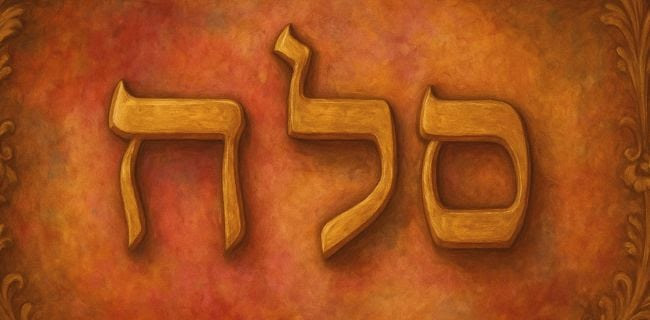Sandra Aviv
Psalm 3 begins in heartbreak: David is running — from his own son. “A psalm of David, when he fled from Absalom his son…” (Psalm 3:1)

This isn’t poetry from a palace. It’s a prayer from the wilderness — a desperate cry from a father whose world has fallen apart.
But even here, in the most painful betrayal of his life, David says: “But You, O Lord, are a shield around me…” (Psalm 3:3)
The Hebrew word for “shield” is magen — not just a defense, but an active protector who surrounds and upholds.
In Psalm 3:5, David writes: “I lay down and slept; I awoke, for the Lord sustains me.”
At first glance, it seems simple — but in the biblical and Jewish worldview, sleep is never taken for granted. To sleep is to surrender. It’s a daily act of letting go of control, defenseless and unaware of what may come.
In Jewish tradition, “sleep is 1/60 of death.” Waking isn’t guaranteed — it’s a gift! That’s why morning prayers include: “Modeh ani… You have returned my soul to me; great is Your faithfulness.”
So when David lies down to sleep — not with guards, not in safety, but on the run — it’s not just rest. It’s radical trust.

Jewish tradition sees Psalm 3 as the prayer for morning — the first psalm recited each day. Because it doesn’t begin in comfort. It begins in chaos — and moves toward emunah, deep faith that God hears.
Psalm 3 is the first psalm to carry a superscription — a line that tells us when and why it was written. It’s not just beautiful poetry. It’s tied to a real historical crisis.
This is also the first Psalm to include the mysterious Hebrew word Selah (סֶלָה). In Jewish interpretation, Selah is a pause — a moment to stop and truly let the words sink in.


